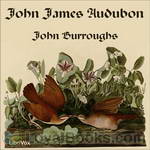|
Books Should Be Free Loyal Books Free Public Domain Audiobooks & eBook Downloads |
|
|
Books Should Be Free Loyal Books Free Public Domain Audiobooks & eBook Downloads |
|
Science |
|---|
|
Book type:
Sort by:
View by:
|
By: Jason Kirby | |
|---|---|
 The Floating Island of Madness
The Floating Island of Madness
| |
By: Jasper W. Rogers | |
|---|---|
 Facts for the Kind-Hearted of England! As to the Wretchedness of the Irish Peasantry, and the Means for their Regeneration
Facts for the Kind-Hearted of England! As to the Wretchedness of the Irish Peasantry, and the Means for their Regeneration
| |
By: Jean M. Thompson | |
|---|---|
 Water Wonders Every Child Should Know
Water Wonders Every Child Should Know
Water: essential for life and in much of the world, we take it for granted. In this work, Jean Thompson explains various aspects of the water cycle in simple terms, for the benefit of young readers with enquiring minds. Listeners are referred to the text for the microphotographs described. | |
By: Jean-Henri Fabre (1823-1915) | |
|---|---|
 Social Life in the Insect World
Social Life in the Insect World
| |
 The Wonders of Instinct Chapters in the Psychology of Insects
The Wonders of Instinct Chapters in the Psychology of Insects
| |
 Bramble-Bees and Others
Bramble-Bees and Others
| |
 The Glow-Worm and Other Beetles
The Glow-Worm and Other Beetles
| |
 Mason-Bees
Mason-Bees
This is more than a book about bees and their lives; the author talks about his cats, red ants, and insect psychology in general. Jean Henri Fabre also made waves in his native 19th Century France by insisting that girls be included in his science classes, so I dedicate this recording to certain young women who risk their lives or even the less important attentions of boys simply to learn. | |
 Life of the Fly, With Which are Interspersed Some Chapters of Autobiography
Life of the Fly, With Which are Interspersed Some Chapters of Autobiography
The title tells all, along with other observations on insect life from the famed accidental entomologist of 19th Century France.. | |
 More Hunting Wasps
More Hunting Wasps
| |
 Insect Adventures
Insect Adventures
This book is composed of selections from Alexander Teixeira de Mattos’ Translation of Fabre’s “Souvenirs Entomologiques,” retold for children. It's made up of first-person narratives, and using his exceptional observation skills, gives us a close-up peep into the world of insects, including bees, wasps, worms, beetles, moths, and spiders, to name a few. When Fabre first published this work, as the Preface indicates, he was criticized by some scientists in his field for writing a scientific book that was "too interesting." - Summary by Devorah Allen | |
By: Jerome Bixby (1923-1998) | |
|---|---|
 Zen
Zen
| |
 The Slizzers
The Slizzers
| |
 Where There's Hope
Where There's Hope
| |
By: Jerome Buell Lavay (1860-) | |
|---|---|
 Disputed Handwriting
Disputed Handwriting
| |
By: Jesse F. Bone (1916-1986) | |
|---|---|
 The Issahar Artifacts
The Issahar Artifacts
| |
 The Lani People
The Lani People
| |
 Pandemic
Pandemic
| |
 A Question of Courage
A Question of Courage
| |
 A Prize for Edie
A Prize for Edie
| |
By: Jim Harmon (1933-2010) | |
|---|---|
 The Last Place on Earth
The Last Place on Earth
| |
 Measure for a Loner
Measure for a Loner
| |
 The Planet with No Nightmare
The Planet with No Nightmare
| |
By: Jim Wannamaker | |
|---|---|
 Attrition
Attrition
| |
By: Joannes de Sacro Bosco (fl. 1230) | |
|---|---|
 The Earliest Arithmetics in English
The Earliest Arithmetics in English
| |
By: Joe Archibald (1898-1989) | |
|---|---|
 Operation Earthworm
Operation Earthworm
| |
By: Joe L. Hensley (1926-2007) | |
|---|---|
 Now We Are Three
Now We Are Three
| |
By: Joel Dorman Steele | |
|---|---|
 Hygienic Physiology : with Special Reference to the Use of Alcoholic Drinks and Narcotics
Hygienic Physiology : with Special Reference to the Use of Alcoholic Drinks and Narcotics
| |
By: Johann Wolfgang von Goethe (1749-1832) | |
|---|---|
 Theory of Colours
Theory of Colours
Newton's observations on the optical spectrum were widely accepted but Goethe noticed the difference between the scientific explanation and the phenomena as experienced by the human eye. He did not try to explain this, but rather collected and presented data, conducting experiments on the interplay of light and dark. His work was rejected as 'unscientific' by physicists but his color wheel is still used by artists today. - Summary by Lynne Thompson | |
By: John A. Hobson (1858-1940) | |
|---|---|
 The Evolution of Modern Capitalism A Study of Machine Production
The Evolution of Modern Capitalism A Study of Machine Production
| |
 Problems of Poverty
Problems of Poverty
| |
By: John A. White | |
|---|---|
 Genera and Subgenera of Chipmunks
Genera and Subgenera of Chipmunks
| |
By: John Addington Symonds (1840-1893) | |
|---|---|
 A Problem in Modern Ethics
A Problem in Modern Ethics
“Society lies under the spell of ancient terrorism and coagulated errors. Science is either wilfully hypocritical or radically misinformed.” John Addington Symonds struck many an heroic note in this courageous (albeit anonymously circulated) essay. He is a worthy Virgil guiding the reader through the Inferno of suffering which emerging medico-legal definitions of the sexually deviant were prepared to inflict on his century and on the one which followed. Symonds pleads for sane human values in... | |
By: John Augustine Zahm (1851-1921) | |
|---|---|
 Woman in Science
Woman in Science
A history of woman's role in science through the ages and the many contributions she has made.Chapter Titles are:1. Woman's Long Struggle for Things of the Mind2. Woman's Capacity for Scientific Pursuits3. Women in Mathematics4. Women in Astronomy5. Women in Physics6. Women in Chemistry7. Women in the Natural Sciences8. Women in Medicine and Surgery9. Women in Archæology10. Women as Inventors11. Women as Inspirers and Collaborators in Science12. The Future of Women in Science: Summary and Epilogue | |
By: John Bernhard Smith (1858-1912) | |
|---|---|
 Explanation of Terms Used in Entomology
Explanation of Terms Used in Entomology
| |
By: John Berryman (1919-1988) | |
|---|---|
 Card Trick
Card Trick
The Psi Lodge had their ways and means of applying pressure, when pressure was needed. But the peculiar talent this fellow showed was one that even they'd never heard of...! | |
 Modus Vivendi
Modus Vivendi
| |
 Vigorish
Vigorish
| |
 The Trouble with Telstar
The Trouble with Telstar
| |
 The Right Time
The Right Time
| |
By: John Burroughs (1837-1921) | |
|---|---|
 John James Audubon
John James Audubon
Audubon’s life naturally divides itself into three periods: his youth, which was on the whole a gay and happy one, and which lasted till the time of his marriage at the age of twenty-eight; his business career which followed, lasting ten or more years, and consisting mainly in getting rid of the fortune his father had left him; and his career as an ornithologist which, though attended with great hardships and privations, brought him much happiness and, long before the end, substantial pecuniary rewards. | |
 Birds and Bees, Sharp Eyes, and Other Papers
Birds and Bees, Sharp Eyes, and Other Papers
Probably no other American writer has a greater sympathy with, and a keener enjoyment of, country life in all its phases—farming, camping, fishing, walking—than has John Burroughs. His books are redolent of the soil, and have such "freshness and primal sweetness," that we need not be told that the pleasure he gets from his walks and excursions is by no means over when he steps inside his doors again. As he tells us on more than one occasion, he finds he can get much more out of his outdoor experiences by thinking them over, and writing them out afterwards... | |
 Under the Maples
Under the Maples
| |
 Ways of Nature
Ways of Nature
| |
 The Breath of Life
The Breath of Life
| |
 Bird Stories from Burroughs
Bird Stories from Burroughs
What a better way to learn about birds than to read this delightful collection of interesting bird stories! John Burroughs was a nature essayist. These creative, observation- and emotion-driven stories about birds (largely from the Northeastern states), have been gathered together into a single volume from all his various works. Every chapter follows one species of birds, and the chapters have been arranged chronologically according to the time of the bird's arrival during the year. This collection has lovely illustrations of the birds by Louis Agassiz Fuertes, and some stories also have poems to go along with them. | |
 Winter Sunshine
Winter Sunshine
| |
 Wake-Robin
Wake-Robin
| |
 Squirrels and Other Fur-Bearers
Squirrels and Other Fur-Bearers
| |
 The Wit of a Duck and Other Papers
The Wit of a Duck and Other Papers
| |
By: John Claridge | |
|---|---|
 The Shepherd of Banbury's Rules to Judge of the Changes of the Weather, Grounded on Forty Years' Experience
The Shepherd of Banbury's Rules to Judge of the Changes of the Weather, Grounded on Forty Years' Experience
| |
By: John Clay Coleman | |
|---|---|
 Jim Crow Car; Or, Denouncement of Injustice Meted Out to the Black Race
Jim Crow Car; Or, Denouncement of Injustice Meted Out to the Black Race
"My opposition to injustice, imposition, discrimination and prejudice, which have for many years existed against the colored people of the South, has led to this little book. In many parts of America the press has been furnished with “matter” for defending the colored people, through the medium of “Coleman’s Illustrated Lectures.” By request of my many auditors, some of whom being leading elements of the Northern States and Canada, this volume is published. Many persons interested in the welfare of the negro, have sought a more elaborate book on the Southern horrors... | |
By: John Codman (1814-1900) | |
|---|---|
 Free Ships: The Restoration of the American Carrying Trade
Free Ships: The Restoration of the American Carrying Trade
| |
By: John Collins Warren (1778-1856) | |
|---|---|
 Cases of Organic Diseases of the Heart
Cases of Organic Diseases of the Heart
| |
By: John Conrade Amman (1669-1724) | |
|---|---|
 The Talking Deaf Man A Method Proposed, Whereby He Who is Born Deaf, May Learn to Speak
The Talking Deaf Man A Method Proposed, Whereby He Who is Born Deaf, May Learn to Speak
| |
By: John Cory | |
|---|---|
 Egocentric Orbit
Egocentric Orbit
| |
By: John Cotton Dana (1856-1929) | |
|---|---|
 A Library Primer
A Library Primer
| |
By: John D. Beresford (1873-1947) | |
|---|---|
 The Wonder
The Wonder
| |
By: John D. Rockefeller (1839-1937) | |
|---|---|
 Random Reminiscences of Men and Events
Random Reminiscences of Men and Events
A good book by the oil revolutionist of the 20th century. As they say "Men should listen to experience" and this book is all about the experience of the second highest taxpayer of the US during the 20's. Though it is not in the book, this is a small poem he wrote:I was early taught to work as well as play,My life has been one long, happy holiday;Full of work and full of play-I dropped the worry on the way- And God was good to me everyday. | |
By: John Davenport (1789-1877) | |
|---|---|
 Aphrodisiacs and Anti-aphrodisiacs: Three Essays on the Powers of Reproduction
Aphrodisiacs and Anti-aphrodisiacs: Three Essays on the Powers of Reproduction
| |
By: John De Courcy | |
|---|---|
 Foundling on Venus
Foundling on Venus
| |
By: John Dee (1527-1608) | |
|---|---|
 The Mathematicall Praeface to Elements of Geometrie of Euclid of Megara
The Mathematicall Praeface to Elements of Geometrie of Euclid of Megara
| |
By: John Delafield | |
|---|---|
 Mysticism and its Results Being an Inquiry into the Uses and Abuses of Secrecy
Mysticism and its Results Being an Inquiry into the Uses and Abuses of Secrecy
| |
By: John Dewey (1859-1952) | |
|---|---|
 Human Nature And Conduct - Part 1, The Place of Habit in Conduct
Human Nature And Conduct - Part 1, The Place of Habit in Conduct
John Dewey, an early 20th Century American philosopher, psychologist, educational theorist saw Social Psychology as much a physical science as Biology and Chemistry. This project encompasses Part 1 of 4 of his book Human Nature and Conduct. Dewey's uses the word "HABIT" as a specialized catch-all word to describe how a person and his/her objective environment interact. This interaction is the basis for moral judgement. Dewey writes: "All habits are demands for certain kinds of activity; and they constitute the self.” In other places he also asserts that "Habits are Will." - Summary by William Jones, Soloist | |
By: John Dutton Wright (1866-1952) | |
|---|---|
 What the Mother of a Deaf Child Ought to Know
What the Mother of a Deaf Child Ought to Know
Wright, a pioneer in the education of the deaf, was a strong advocate for acoustic and auricular training. In this little book, he tries to advise the parents of deaf children and reassure them that there can be a successful and happy life for them. | |
By: John Ellis (1815-1896) | |
|---|---|
 Personal Experience of a Physician
Personal Experience of a Physician
| |
By: John Foster West (1919-2008) | |
|---|---|
 Cogito, Ergo Sum
Cogito, Ergo Sum
| |
By: John Gregory Bourke (1846-1896) | |
|---|---|
 Apache Campaign In The Sierra Madre
Apache Campaign In The Sierra Madre
An account of the expedition [of the U.S. Army] in pursuit of the hostile Chiricahua Apaches in the spring of 1883. Bourke was a Medal of Honor awardee in the American Civil War whose subsequent Army career included several campaigns in the Indian wars of the mid to late 19th century in the American West. He wrote prolifically. He was mostly free of the unfortunate disdain for Native Americans common in 19th century America. He was quite admiring of many aspects of the Native American. “… Bourke had the opportunity to witness every facet of life in the Old West—the battles, wildlife, the internal squabbling among the military, the Indian Agency, settlers, and Native Americans... | |
 Medicine-Men Of The Apache
Medicine-Men Of The Apache
“Herewith I have the honor to submit a paper upon the paraphernalia of the medicine-men of the Apache and other tribes. Analogues have been pointed out, wherever possible, especially in the case of the hoddentin and the izze-kloth, which have never to my knowledge previously received treatment.” . Bourke was a Medal of Honor awardee in the American Civil War whose subsequent Army career included several campaigns in the Indian wars of the mid to late 19th century in the American West. He wrote prolifically... | |
By: John H. (John Hinchman) Stokes (1885-1961) | |
|---|---|
 The Third Great Plague A Discussion of Syphilis for Everyday People
The Third Great Plague A Discussion of Syphilis for Everyday People
| |
By: John H. White (1933-) | |
|---|---|
 The 'Pioneer': Light Passenger Locomotive of 1851 United States Bulletin 240, Contributions from the Museum of History and Technology, paper 42, 1964
The 'Pioneer': Light Passenger Locomotive of 1851 United States Bulletin 240, Contributions from the Museum of History and Technology, paper 42, 1964
| |
By: John Harvey Kellogg (1852-1943) | |
|---|---|
 Plain Facts for Old and Young
Plain Facts for Old and Young
| |
 First Book in Physiology and Hygiene
First Book in Physiology and Hygiene
| |
By: John Haslam (1764-1844) | |
|---|---|
 A Letter to the Right Honorable the Lord Chancellor, on the Nature and Interpretation of Unsoundness of Mind, and Imbecility of Intellect
A Letter to the Right Honorable the Lord Chancellor, on the Nature and Interpretation of Unsoundness of Mind, and Imbecility of Intellect
| |
By: John Henry Fow (1851-1915) | |
|---|---|
 The True Story of the American Flag
The True Story of the American Flag
| |
By: John Henry Tilden (1851-1940) | |
|---|---|
 Appendicitis
Appendicitis
| |
By: John Higginbottom (1788-1876) | |
|---|---|
 An Essay on the Application of the Lunar Caustic in the Cure of Certain Wounds and Ulcers
An Essay on the Application of the Lunar Caustic in the Cure of Certain Wounds and Ulcers
| |
By: John Hill (1714?-1775) | |
|---|---|
 Hypochondriasis A Practical Treatise (1766)
Hypochondriasis A Practical Treatise (1766)
| |
By: John Jacob Astor IV (1864-1912) | |
|---|---|
 A Journey in Other Worlds: A Romance of the Future
A Journey in Other Worlds: A Romance of the Future
A Journey in Other Worlds: A Romance of the Future is a science fiction novel by John Jacob Astor IV, published in 1894. The book offers a fictional account of life in the year 2000. It contains abundant speculation about technological invention, including descriptions of a world-wide telephone network, solar power, air travel, space travel to the planets Saturn and Jupiter, and terraforming engineering projects — damming the Arctic Ocean, and adjusting the Earth’s axial tilt (by the Terrestrial Axis Straightening Company)... | |
By: John Joly (1857-1933) | |
|---|---|
 The Birth-Time of the World and Other Scientific Essays
The Birth-Time of the World and Other Scientific Essays
| |
By: John K. (John Kerr) Tiffany (1843-1897) | |
|---|---|
 History of the Postage Stamps of the United States of America
History of the Postage Stamps of the United States of America
| |
By: John Kent | |
|---|---|
 Observations on the Causes, Symptoms, and Nature of Scrofula or King's Evil, Scurvy, and Cancer With Cases Illustrative of a Peculiar Mode of Treatment
Observations on the Causes, Symptoms, and Nature of Scrofula or King's Evil, Scurvy, and Cancer With Cases Illustrative of a Peculiar Mode of Treatment
| |
By: John Kirk (1813-1886) | |
|---|---|
 Papers on Health
Papers on Health
| |
By: John Locke (1632-1704) | |
|---|---|
 Second Treatise of Government
Second Treatise of Government
| |
By: John Lubbock (1834-1913) | |
|---|---|
 The Beauties of Nature and the Wonders of the World We Live In
The Beauties of Nature and the Wonders of the World We Live In
| |
By: John Lyde Wilson (1784-1849) | |
|---|---|
 The Code of Honor, Or, Rules for the Government of Principals and Seconds in Duelling
The Code of Honor, Or, Rules for the Government of Principals and Seconds in Duelling
| |
By: John Merle Coulter (1851-1928) | |
|---|---|
 North American Species of Cactus
North American Species of Cactus
| |
By: John Moody (1868-1958) | |
|---|---|
 The Railroad Builders; a chronicle of the welding of the states
The Railroad Builders; a chronicle of the welding of the states
| |
By: John Muir (1838-1914) | |
|---|---|
 The Story of My Boyhood and Youth
The Story of My Boyhood and Youth
“The only fire for the whole house was the kitchen stove, with a fire box about eighteen inches long and eight inches wide and deep,- scant space for three or four small sticks, around which in hard zero weather all the family of ten shivered, and beneath which in the morning we found our socks and coarse, soggy boots frozen solid.” Thus, with perceptive eye for detail, the American naturalist, John Muir, describes life on a pioneer Wisconsin farm in the 1850’s. Muir was only eleven years old when his father uprooted the family from a relatively comfortable life in Dunbar, Scotland, to settle in the backwoods of North America... | |
 Travels in Alaska
Travels in Alaska
In 1879 John Muir went to Alaska for the first time. Its stupendous living glaciers aroused his unbounded interest, for they enabled him to verify his theories of glacial action. Again and again he returned to this continental laboratory of landscapes. The greatest of the tide-water glaciers appropriately commemorates his name. Upon this book of Alaska travels, all but finished before his unforeseen departure, John Muir expended the last months of his life. | |
By: John Munro (1849-1930) | |
|---|---|
 The Story of Electricity
The Story of Electricity
In the book's preface, the author writes: "Let anyone stop to consider how he individually would be affected if all electrical service were suddenly to cease, and he cannot fail to appreciate the claims of electricity to attentive study."In these days when we take for granted all kinds of technology - communications, entertainment, medical, military, industrial and domestic - it is interesting to learn what progress had been made in the fields of electricity and technology by the beginning of the 20th century... | |
By: John N. Reynolds | |
|---|---|
 The Twin Hells; a thrilling narrative of life in the Kansas and Missouri penitentiaries
The Twin Hells; a thrilling narrative of life in the Kansas and Missouri penitentiaries
| |
By: John O'Keefe | |
|---|---|
 As Long As You Wish
As Long As You Wish
| |
By: John R. (John Robert) Effinger (1869-1933) | |
|---|---|
 Women of the Romance Countries
Women of the Romance Countries
| |
 Women of the Romance Countries (Illustrated) Woman: In all ages and in all countries Vol. 6 (of 10)
Women of the Romance Countries (Illustrated) Woman: In all ages and in all countries Vol. 6 (of 10)
| |
By: John Stuart Mill (1806-1873) | |
|---|---|
 The Subjection of Women
The Subjection of Women
The Subjection of Women is the title of an essay written by John Stuart Mill in 1869, possibly jointly with his wife Harriet Taylor Mill, stating an argument in favor of equality between the sexes. It offers both detailed argumentation and passionate eloquence in opposition to the social and legal inequalities commonly imposed upon women by a patriarchal culture. Just as in “On Liberty,” Mill defends the emancipation of women on utilitarian grounds, convinced that the moral and intellectual advancement of women would result in greater happiness for everybody. | |
 Auguste Comte and Positivism
Auguste Comte and Positivism
Part 1 lays out the framework for Positivism as originated in France by Auguste Comte in his Cours de Philosophie Positive. Mill examines the tenets of Comte's movement and alerts us to defects. Part 2 concerns all Comte's writings except the Cours de Philosophie Positive. During Comte's later years he gave up reading newspapers and periodicals to keep his mind pure for higher study. He also became enamored of a certain woman who changed his view of life. Comte turned his philosophy into a religion, with morality the supreme guide. Mill finds that Comte learned to despise science and the intellect, instead substituting his frantic need for the regulation of change. | |